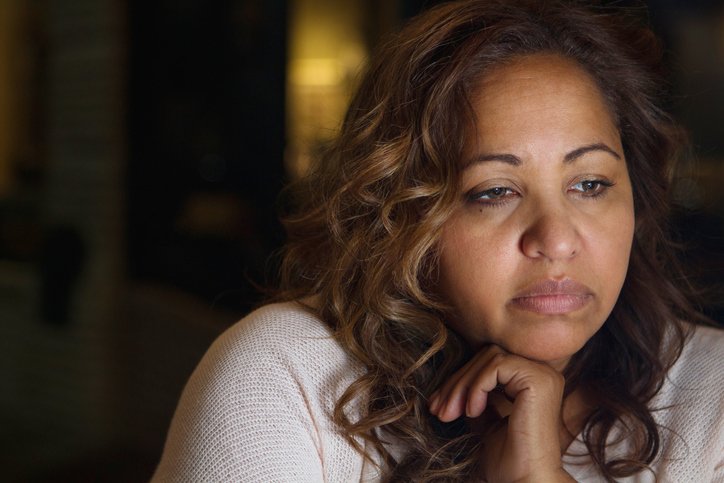How to Cope with an Unexpected Death
When Patrice’s mother passed away suddenly, she was shell-shocked. “I had just taken Mom to church and out to lunch. I never could have imagined that she’d be gone just hours later.”
Patrice and her mother aren’t alone. The Centers for Disease Control estimates that the incidence of unexpected passing accounts for approximately 10% of all natural deaths in the United States. That figure increases to nearly 15% among the African American population. Cardiac arrest and stroke are the most frequent causes of sudden death. Suicide, homicide and automobile accidents are other common culprits. In all of these dire situations, the grief response becomes far more complicated.

Whether death is unexpected or anticipated, there is pain. While the grief isn’t greater following a sudden death, it diminishes the capacity to cope. The shock of the loss is so disruptive and overwhelming that recovery is almost always difficult. Everyday functioning may be seriously impaired, and grievers often suffer from extreme feelings of anxiety, regret, and depression. This sudden destruction of the world as it has been doesn’t allow time to say goodbye, or for a gradual transition into acceptance. For survivors whose loved ones die suddenly, grief symptoms tend to be more acute and long-lasting. If you are among those who have suffered a shocking sudden loss, here is some supportive guidance to help you pick up the pieces and move on with your life.
While your reactions may be extreme and distressing, know that they are normal. Immediately after finding out the news of a sudden death, suddenly bereaved people often display symptoms of shock. There is usually an initial period of disbelief that the death actually occurred. Symptoms can vary from screaming, to shaking, to an inability to talk or move, or to eat, drink or sleep. Physical responses may include general pains such as stomach ache or headache, diarrhea, heart palpitations, extreme anxiety, and exhaustion. These shock-like symptoms are often intensely draining, but they should subside in time. Many other people have suffered these same reactions and gone on to lead full, happy lives.
Your thoughts may take a hit, too. During the first four to six weeks after a sudden bereavement, a number of unsettling thoughts and reactions are common. Painful and intrusive feelings, such as regret, fear and/or anger, may crop up frequently. Nightmares may also occur. While they can be distressing, it’s important to understand that they are your mind’s way of working through the trauma you’ve endured.
Insomnia is common. If you’re having trouble falling asleep, try creating a pre-bed time routine that relaxes you. You might read a book, watch TV (preferably something light-hearted or comical), listen to relaxing music, or meditate. Avoid caffeine entirely, or at least after lunchtime. Make sure your bed is as comfortable as possible. If you’re having trouble sleeping alone, invite a trusted family member or friend for a sleep-over. They will probably be more than happy to be able to support you in your time of need. If all else fails, sleeping aids may be helpful, but they should be used in moderation and only as a last resort.
Remember that strong feelings place stress on your body. Now is not the time to go on a diet. Having some chocolate or a slice of pizza may be soothing. At the same time, it’s also important to look after your nutritional needs. You may find it helpful to stock up with foods that are tasty, good for you, and easy to prepare, such as cheese and crackers, yogurt, natural cereals, and tuna fish.
Don’t be afraid to seek help. It’s not uncommon for suddenly bereaved people to be suffering other life challenges that make it harder for them to recover from thoughts and reactions resulting from their grief. If your intense thoughts and reactions last for more than two months, get an assessment of your care needs, as you may be suffering from traumatic grief reactions or post-traumatic stress disorder. Your healthcare professional or funeral director can help you locate an appropriate support group or grief counselor.
Above all, be gentle with yourself. You may find that what helps someone else may not help you. What uplifts you one day may not on another day. It’s normal for your ability to cope, your outlook, and your energy levels to vary. Try to be flexible with the coping techniques you use and take it one day at a time.
If you have questions or need additional help dealing with your symptoms of grief following the unexpected death of a loved one, please reach out to us anytime. We’re always here for you.
About Vaughn Greene Funeral Services: For more than 20 years, Vaughn Greene Funeral Services has been providing a ministry of care to Baltimore’s African American community. As a leading local, minority- and family-owned provider, we promise to provide our highest level of service and respect to families who entrust us to honor their loved one. For more information, please call us at 410.655.0015 or visit us online at https://vaughncgreene.com/.







Comments